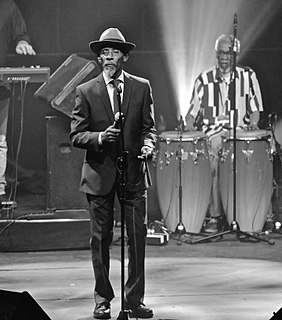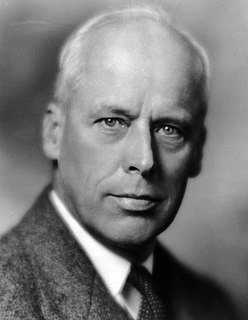A Quote by J. I. Packer
The biblical authors wrote of God's sovereignty over His world, and of man's experiences within that world, using such modes of speech about the natural order and human experience as were current in their days, and in a language that was common to themselves and their contemporaries. This is saying no more than that they wrote to be understood. Their picture of the world and things in it is not put forward as normative for later science, andy more than their use of Hebrew and Greek is put forward as a perfect model for composition in these languages.
Quote Topics
About
Andy
Authors
Biblical
Common
Composition
Current
Days
Experience
Experiences
Forward
God
Greek
Hebrew
His
Human
Human Experience
Language
Languages
Later
Man
Model
Modes
More
Natural
Natural Order
Order
Over
Perfect
Picture
Put
Saying
Saying No
Science
Sovereignty
Speech
Than
Themselves
Things
Understood
Use
Using
Were
Within
World
Wrote
Related Quotes
That the language of the poetry of Jamaican music is rastafarian or biblical language cannot simply be put down to the colonizer and his satanic missionaries. The fact is that the historical experience of the black Jamaican is an experience of the most acute human suffering, desolation and despair in the cruel world that is the colonial world.
When biblical material touches on the natural world, we can legitimately use the tools of science. Sometimes that shows us - no shock here - that biblical writers didn't know as much as we now know about the natural world - but God knew that when he picked them, so that alone tells us that "doing science" that would satisfy a 21st century - and beyond - audience wasn't what God was interested in with respect to the enterprise of producing Scripture for posterity.
I just would like to say that over more than a quarter-century as a scientist and a believer, I find absolutely nothing in conflict between agreeing with Richard [Dawkins] in practically all of his conclusions about the natural world, and also saying that I am still able to accept and embrace the possibility that there are answers that science isn't able to provide about the natural world - the questions about why instead of the questions about how. I'm interested in the whys.
There are some plain common-sense considerations applicable to all these attempts at world planning. They can be briefly stated: 1. To talk of blueprints for the future or building a world order is, if properly understood, suggestive, but it is also dangerous. Societies grow far more truly than they are built. A constitution for a new world order is never like a blueprint for a skyscraper.
Architecture is the triumph of human imagination over materials, methods, and men, to put man into possession of his own Earth. It is at least the geometric pattern of things, of life, of the human and social world. It is at best that magic framework of reality that we sometimes touch upon when we use the word order.
Science begins with the world we have to live in, accepting its data and trying to explain its laws. From there, it moves toward the imagination: it becomes a mental construct, a model of a possible way of interpreting experience. The further it goes in this direction, the more it tends to speak the language of mathematics, which is really one of the languages of the imagination, along with literature and music. Art, on the other hand, begins with the world we construct, not with the world we see. It starts with the imagination, and then works toward ordinary experience.
The big turning point for me was a school debate in sixth year when, against all odds and to everybody's surprise, I put myself forward... I wrote this funny speech and was determined to do my own thing, and it wasn't on topic and people were laughing a lot. I really can't describe how wonderful an experience it was.
Glamour is all about transcending this world and getting to an idealized, perfect place. And this is one reason that modes of transportation tend to be extremely glamorous. The less experience we have with them, the more glamorous they are. So you can do a glamorized picture of a car, but you can't do a glamorized picture of traffic.
There cannot be a language more universal and more simple, more free from errors and obscurities...more worthy to express the invariable relations of all natural things [than mathematics]. [It interprets] all phenomena by the same language, as if to attest the unity and simplicity of the plan of the universe, and to make still more evident that unchangeable order which presides over all natural causes
Every time I put a collection together I'd scrap it because there was no "meaning," until I wrote about the two black men - friends - in the beginning of the book. So much of their experience was ABOUT trying to find friends in the authors/artists I wrote about - subjects that were/are a source of comfort, somehow, since none of them "fit," either
The wise men understood that this natural world is only an image and a copy of paradise. The existence of this world is simply a guarantee that there exists a world that is perfect. God created the world so that, through its visible objects, men could understand his spiritual teachings and the marvels of his wisdom.
How much of what the biblical writers believed about the supernatural world do I believe? They weren't us. We are products of the Enlightenment; they were not. So let's stop denying that reality. Rather than sitting in judgment on them from our Enlightenment perches, we ought to have them sit in judgment on us when it comes to informing us about the supernatural world. After all, what they wrote was ultimately overseen by God.
For ten years, I wrote regular columns about science for women's magazines, and to my knowledge I'm the only person in the world who can say that. This has no kudos in either the science-writing world or the academic world, but it's one of the most challenging things I've ever done. It's much harder to write about cosmology for a magazine like Vogue than for the New York Times, which I've also written for, because you have to imagine that on the page opposite there'll be an advertisement for eyeliner, or an article about the latest trends in skirt length.





































